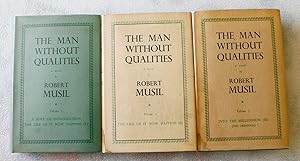

After the war, Musil worked as a civil servant and, from 1921 as a theatre critic, essayist and writer in Vienna. After serving briefly on the Italian front, he was transferred to the ‘War Press Service’. When the First World War started, Musil was a journalist for the Neue Rundschau. Between 19, Musil worked as a librarian at the Technical University of Vienna. Mach’s theory that the world was to be understood objectively based on sensory experiences was often adopted by Musil in his literary works.

In 1909, Musil completed his doctoral studies at the University of Berlin with a thesis on the Austrian physicist and philosopher Ernst Mach. In 1904, he obtained his grammar school matriculation and went to Berlin to study psychology and philosophy. Following his military service (1901–1902), he worked as an unpaid assistant at the Technical University in Stuttgart. Between 18 he studied at the German Technical University in Brünn, qualifying as an engineer. Eisenstadt) in Hungary, and then, until 1897, in Mährisch Weißkirchen (present-day Hranice, Czech Republic). Between 18, Musil attended the military boarding schools at Kismarton ( Ger. Brno), where his father, an engineer, was appointed to the chair of Mechanical Engineering at the German Technical University in 1891.

Musil spent most of his childhood in Steyr and Brünn ( Cz. About the authorĥ Robert Musil : writer, dramatist and essayist. III (1943)ĤThe excerpts used are from Robert Musil, The Man without Qualities, translated by Sophie Wilkins and Burton Pike (New York: Alfred A. 1 Title: Der Mann ohne Eigenschaften (The man without qualities)Ģ Originally published: Berlin, Rowohlt, vol.


 0 kommentar(er)
0 kommentar(er)
